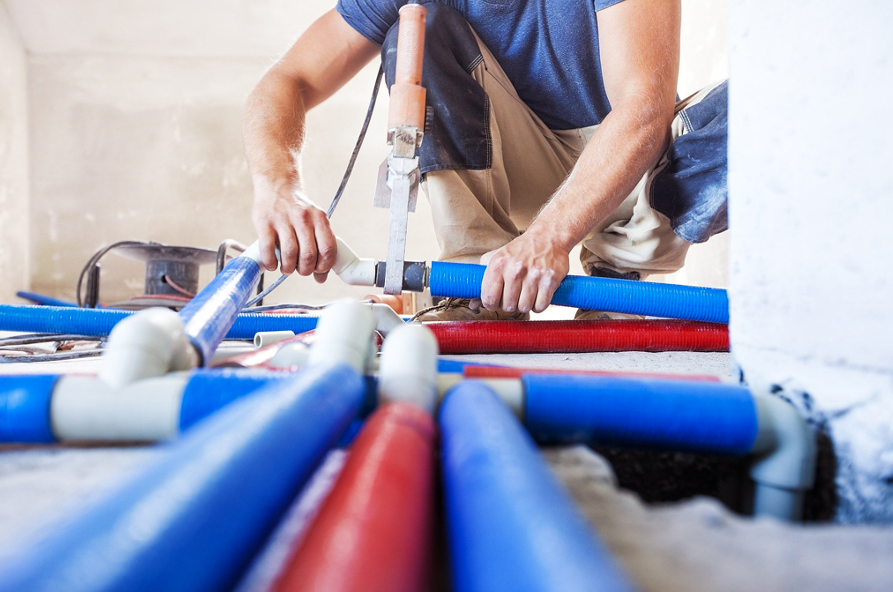
A home’s exterior is one of the first things people notice when they walk up to a property. It’s also one of the first things that can start to show wear and tear. If you’re like most homeowners, you probably don’t want to deal with replacing your exterior until something drastic happens. Unfortunately, that “dramatic” situation may be sooner rather than later—especially if you live in an area where the weather is tough on materials. In this article, repiping specialist will exposed about importance of repiping and signs that it’s time for you to consider repiping your home.
What is a Repipe?
A repipe is a renovation or replacement of an old water pipe in your home. It can be a cost-effective way to solve many plumbing problems, and it's usually a simple process. Some times a repipe may involve the installation of a new faucet, fixture, or entire plumbing system. Repiping is a straightforward process that require only a few basic tools and some common sense.
When Should You Repipe Your Home?
One of the most common home maintenance tasks is repiping. However, when should you repipe your home? Repiping may be a good idea when it’s time to replace worn or damaged pipes and when a more eco-friendly option is available. Here are three factors to consider:
1. Age of Your Pipes: Older pipes may need to be replaced sooner than new pipes. Pipes that were installed in the 1930s or earlier are likely to need replacement at some point. Be sure to check with your local water authority for updated information on pipe age and replacement schedule.
2. Condition of Your Pipe System: If your system is in poor condition, it will need more frequent repairs and may not function as efficiently as new piping would. Poorly insulated pipes can also lead to freezing problems in wintertime. Check out the condition of your pipes using a pipe inspection checklist from your local water authority or contractor.
3. Cost Factors: In addition to age, factors such as how much water is used each day, whether you have a septic system, and the distance from town can affect the cost of replacing pipes versus repairing them. Talk with a contractor or water authority about cost estimates before making a decision aboutrepiping your home.
Repiping should be considered when it’s time to replace worn or damaged pipes and when a more eco-friendly option is available.
Repiping your home is a big decision
Repiping your home is a big decision and it can be costly. Here are some things to keep in mind when deciding whether or not to repipe:
-The age of your home and the type of plumbing it has. Older homes may have lead or copper pipes which can be more expensive to replace than newer homes with plastic pipes.
-The size of the pipe you need to replace. If you only need a small section of pipe replaced, it may be cheaper to do it yourself rather than hiring a professional.
-The condition of the piping before and after repiping. If the surface coatings on the pipe are worn down, it will become more difficult to seal and maintain watertightness, which could lead to leaks later on.
-Your budget. A professional repipe job can cost between $1,000 and $5,000 depending on the condition of your home and the type of plumbing involved.
What are the Benefits of Repiping My Home?
Understanding the benefits of repiping your home can help you make the decision to do it sooner rather than later. Here are some key reasons:
1. It can improve your indoor air quality. When water is forced under pressure through small holes and into the soil, it causes a number of problems including erosion of soils, bacteria growth, and smell. A recent study by The Home Advisor found that replacing just 16% of your home’s plumbing system with copper piping can improve air quality by up to 74%.
2. Repiping can save you money on your utility bills. Replacing old pipes with copper ones will reduce the amount of water flowing through them and result in lower monthly utility bills. In addition, using recycled materials when repiping helps conserve natural resources and reduces environmental impact.
3. Repiping can improve your home’s appearance and functionality. A well-maintained copper plumbing system looks nicer and works better than an outdated one, which can increase its value if you decide to sell down the road. In addition, repiping may resolve specific drainage or water flow issues that have been bothering you for a while – making your home more functional overall!
If you’re wondering if repiping is right for you, consider speaking with a professional like The Home Advisor to get an estimate and find out more about the benefits of this home improvement project.
Conclusion
Repiping your home can be a big investment, but it is one that can pay off in many ways. By taking care of your plumbing systems and keeping them in good condition, you will not only save money on costly repairs, but you will also avoid the inconvenience and potential health risks associated with poor plumbing. When should you consider repiping? That depends on a number of factors, including the age of your home's plumbing system and how often it fails. If you have any doubts about whether or not repiping is the right solution for your home, contact a professional plumbers in Katy to discuss your options.













